
November 2018
One Health and Antimicrobial Resistance
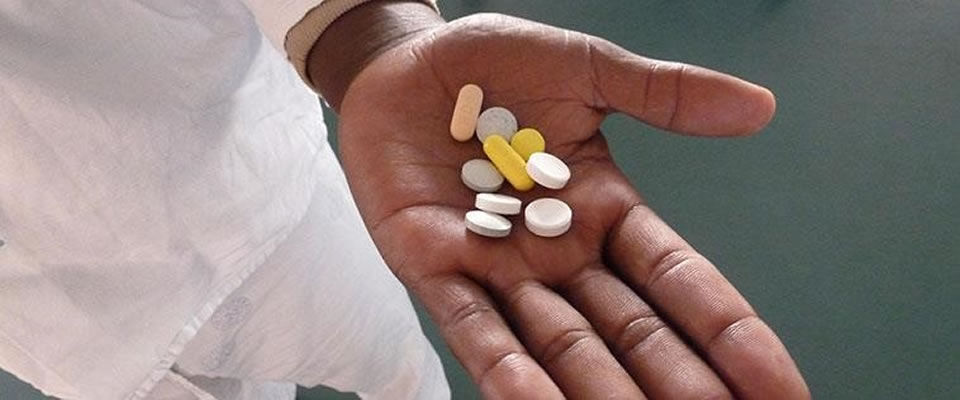
Zoonotic and antimicrobial-resistant (AMR) diseases account for more than 95 percent of all emerging infectious diseases reported during the second half of the 20th century. About 700,000 people die annually as a result of drug-resistant infections caused by tuberculosis (TB), HIV and malaria alone. If no action is taken, it is estimated that drug-resistant infections will kill 10 million people a year by 2050. This scenario has the potential to devastate economies, with an estimated output loss of $100 trillion by 2050. During November, partners around the world came together to acknowledge One Health Day and Antimicrobial Resistance Awareness week. This month's newsletter highlights our work combating AMR; building on the strides made against infectious diseases like TB, HIV, and malaria; and the Bureau for Global Health's multi-sectoral focus on animal, human and environmental health.
GHSA-USAID Commitments to Addressing AMR through a One Health Approach through 2024
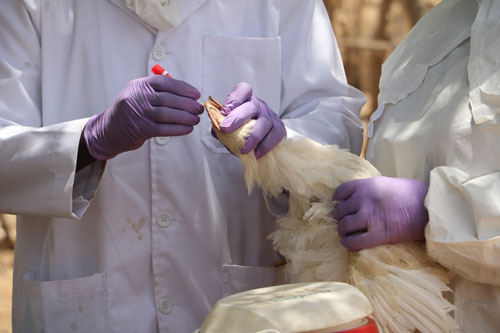
From November 6–8, Indonesia hosted the 5th Global Health Security Agenda (GHSA) Ministerial Meeting in Bali. The meeting underscored that global health security continues to need urgent attention to protect against infectious disease threats, whether naturally occurring, accidental or deliberate. All 64 GHSA member countries agreed to extend GHSA’s original five-year mandate for an additional five years through 2024. The renewed commitment recognizes GHSA as the premier initiative to advance global health security and reinforces the successful implementation of the global standards for health security. Furthermore, GHSA membership acknowledged the importance of multi-sectoral and multi-stakeholder engagement at all levels to advance global health security objectives.
USAID has been instrumental in shaping GHSA goals and the newly launched GHSA 2024 Framework. Since 2015, the Agency has collaborated with more than 17 GHSA countries to strengthen zoonotic disease and One Health capacities by linking expertise in animal and human health and the environment. Through strategic capacity-building activities and leveraging existing U.S. Government and partner investments, the Agency helps focus countries prevent, detect and respond to infectious disease threats that compromise global health security.
The Monetary Impact of Zoonotic Diseases
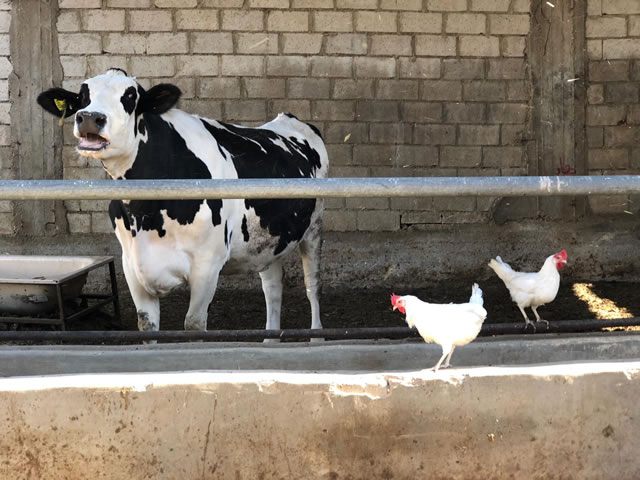
Photo credit: Ashna Kibria/USAID
As countries experience economic and population growth, they also experience increased demands for animal-sourced foods like meat and dairy. Increasing unregulated use of antimicrobials for disease control and growth promotion in livestock production can contribute to the development of antimicrobial resistance. In many countries, there is minimal regulation or documentation on the use of antimicrobials in animal production systems. To prevent AMR from arising in human and animal pathogens, we must do a better job of establishing monitoring systems for AMR and develop regulations for antimicrobial use in livestock production. USAID works with FAO and local governments, academia, and private sector partners across Asia and Africa to promote prudent use of antimicrobials in the livestock and aquaculture production industries and in the crop production sectors to minimize the likelihood of AMR development and spread.
In a region where livestock production is increasing, Africa Sustainable Livestock-2050 (ASL 2050) is bringing together multi-sectoral teams to quantify the monetary impact of zoonotic diseases and AMR on society and to help local governments strategically invest in prevention, management, and control of zoonotic diseases. ASL-2050 aims to build on relationships among farmers, consumers, feed specialists, physicians, economists, veterinarians, ecologists, political scientists and all levels of government to address the looming danger of zoonotic diseases and antibiotic resistance. Read its first report on Ethiopia [PDF, 855KB].
More Information:
- Asia-Pacific Countries Develop AMR Risk Monitoring Guidelines
- FAO’s AMR Action Plan [PDF, 678KB]
- Antimicrobial Consumption Surveillance in LMICs: Optimizing use and addressing antimicrobial resistance [PDF, 485KB]
Getting Safe Medicines to the Patients Who Need Them
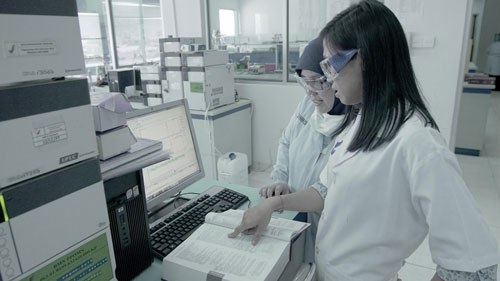
When medicines are produced with poor-quality ingredients, without good manufacturing practices or stored under hot and humid conditions, they can be ineffective. Patients who consume these medicines often suffer severe side effects, develop drug-resistant diseases or even die. Indonesia has the second-largest tuberculosis (TB burden in the world, with an estimated 1 million new cases each year. Before USAID’s work to strengthen the pharmaceutical system, Indonesia had no capacity to test the quality of its TB drug supply. Over the past five years, USAID created a pool of experts at Indonesia’s national drug quality control lab to build capacity for pharmaceutical quality testing in 32 labs across the country.
The Agency is looking at health systems comprehensively to understand how to engage communities, strengthen primary health care and improve pharmaceutical quality to mitigate the threat of antimicrobial resistance and the spread of infectious disease. Pharmaceutical quality testing ensures that national health programs and the private market deliver and sell high-quality medicines, reducing the threat of antimicrobial resistance. This year, the Agency launched a new program called Medicines, Technologies and Pharmaceutical Services. The program will strengthen low-and middle-income country health systems to ensure sustainable access to and appropriate use of safe, effective, quality-assured affordable essential medicines and medicines-related services.
GLOBAL HEALTH HIGHLIGHTS
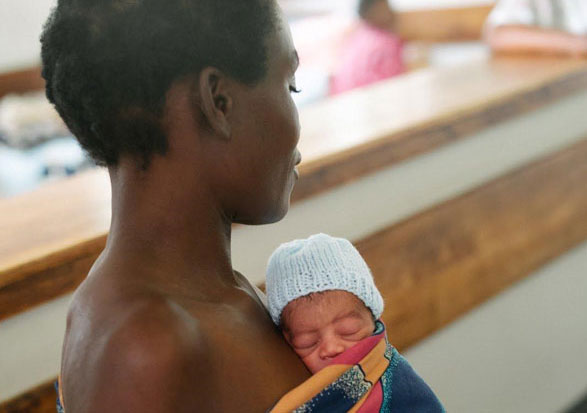
World Prematurity Day
Florence Mwenifumbo, a neonatal nurse in Malawi, and Jocelyn Brown, an MBA student at the University of California, Berkeley, are championing the use of the continuous positive airway pressure machine, better known as CPAP, which can provide premature babies with the air pressure needed to support their breathing.
USAID and local partners work to ensure that all babies have the same chance of a healthy life. By supporting nurses like Florence and innovations like the Pumani bCPAP, the Agency has helped save the lives of more than 800,000 newborns around the world in just five years. The Agency’s support of partnerships like these helps build strong health systems and ensures that governments can meet the needs of their populations.
Read more about global health innovations supported by USAID and the Saving Lives at Birth partnership.
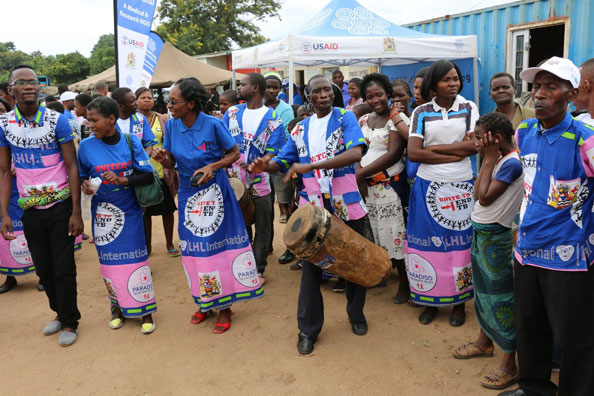
USAID Launches TB Accelerator
For over two decades, USAID’s support for TB efforts in more than 50 countries has helped provide TB treatment to more than 13 million people, including over 300,000 suffering from multidrug-resistant TB (MDR-TB). Drug resistance is a primary focus of our worldwide efforts to overcome MDR-TB, the deadliest infectious disease worldwide. As a result of USAID programs, more than 77,000 people have started appropriate drug resistant-TB treatment to date. To improve diagnosis of drug-resistant TB, the Agency supports the introduction and use of new diagnostics, ensuring rapid availability and use of the new Xpert® MTB/RIF. Investments like these will be built on by the USAID TB Accelerator, which will increase partnerships with the public and private sectors to end the TB epidemic while simultaneously building self-reliance in mission countries.
Read more about antimicrobial resistance and the threat of MDR-TB.
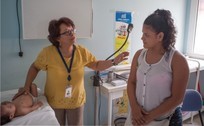
Zika in Animals: The One Health Approach
In 2016, the Zika virus epidemic swept through Latin America and the Caribbean (LAC). Scientists then confirmed the link between Zika infection during pregnancy and devastating birth defects such as microcephaly. But did you know that Zika was first discovered in primates in Uganda in 1947? African primates are a known reservoir for the Zika virus, and according to reports, the virus can now be found in South American primates, too. The role of primates in Zika virus highlights the interconnectedness of human, animal and environmental health, and the importance of the One Health approach in detecting and fighting emerging infectious diseases. USAID combats Zika in LAC by controlling the mosquitoes that spread the virus; increasing awareness of virus transmission and infection prevention; improving disease detection and surveillance; and supporting affected populations. Through efforts like the PREDICT project, the Agency works to detect and prevent disease threats before they occur.
Learn more about USAID’s response to Zika
World AIDS Day
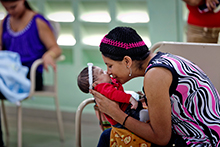
World AIDS Day is December 1, and this year USAID celebrates the 15th anniversary of the President’s Emergency Plan for Relief (PEPFAR). USAID is a lead implementer of the PEPFAR, has saved more than 16 million lives through the generosity of the American people and our partnerships with countries, communities, and many others around the world. Read more.
LOOK AHEAD
One Health in the 21st Century - November 26th at the Wilson Center
Readiness for Microbial Threats 2030: Exploring Lessons Learned Since the 1918 Influenza Pandemic - November 27-28 at the National Academies
Diagnostic Stewardship: Webinar of the WHO AMR Surveillance and Quality Assessment Collaborating Centre Network Series - November 29th
16:00 | Hong Kong Time (GMT+08:00) | 1 hr
Meeting number (access code): 847 415 014
Join from a video system or application. Dial 849296889@who-meeting.webex.com
You can also dial 62.109.219.4 and enter your meeting number.
World AIDS Day - December 1st
USAID GH MEDIA MENTIONS
HHS Officials Reaffirm Support for Global Health Security Agenda
USAID Launches 5-Year, $200M Program To Control, Eliminate 5 NTDs In 11 West African Countries
It's Feared Congo's Ebola Outbreak Will Get Even Worse
The Vital Role of Early-innovation Funders
As Ebola Outbreak Worsens in Congo, U.S. Stays Out of War Zone
Medicines Shouldn't Make People Sicker — Protecting People from Poor-quality Meds
The Fight Against Malaria Has Reached a Standstill
